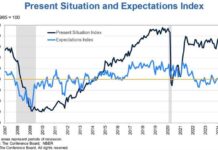In a recent article for the Financial Times, Megan Greene, a member of the BoE’s MPC, shed light on the challenges surrounding the UK’s consumption trends, labeling it a “consumption conundrum.” Despite the fact that real incomes have been on the rise for more than a year and inflation expectations have stabilized around historical averages, real consumption levels are only 1.5% higher than they were before the pandemic, a situation that Greene finds perplexing.
Greene identified three key factors that are likely contributing to the UK’s subdued consumption and increased savings rates. Firstly, she pointed to the cost-of-living crisis, which has been exacerbated by successive shocks such as the pandemic and the conflict in Ukraine, potentially prompting individuals to save more as a precautionary measure. Moreover, the tight monetary policy implemented has put pressure on consumption, despite the fact that overall household income from interest on savings has increased.
Although it remains unclear which of these factors is exerting the most significant influence on consumption, Greene cautioned about the risks associated with both scenarios. A surge in consumption beyond expectations could prompt businesses to pass on higher expenses to consumers, resulting in increased inflation and necessitating an extended period of tighter monetary policy. Conversely, a decline in consumption could lead to inflation falling below the target level, compelling the BoE to implement rapid rate cuts.
In light of these complex dynamics, Greene recommended a prudent and gradual approach to monetary easing, finding a delicate balance between managing inflation risks and providing support to the wider economy. She emphasized the importance of treading carefully to avoid adverse outcomes on either front.
It is evident that the current economic landscape is fraught with uncertainties, and the BoE faces the challenging task of navigating through these turbulent waters. Greene’s insights underscore the need for a nuanced and cautious strategy when it comes to monetary policy, ensuring that the delicate equilibrium between inflation management and economic stimulus is maintained. As the UK grapples with the aftermath of various crises, including the ongoing cost-of-living challenges and global geopolitical tensions, a judicious approach to policymaking will be crucial in steering the country towards a path of sustainable growth and stability.

















